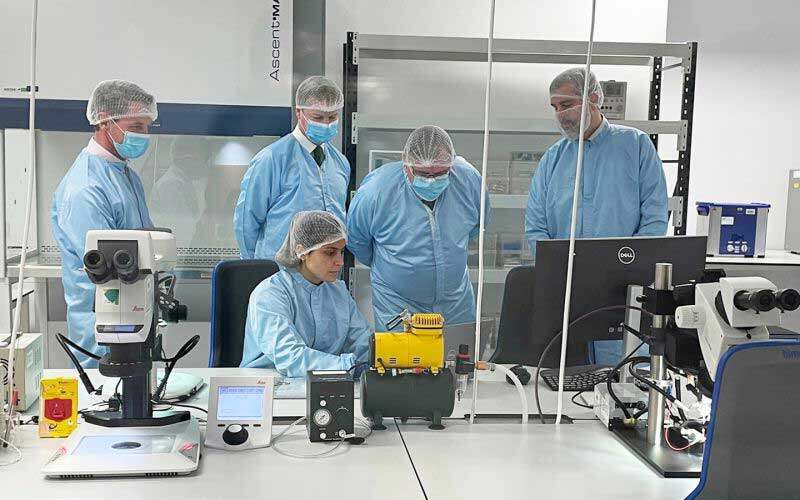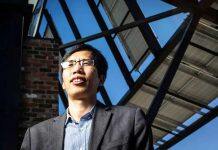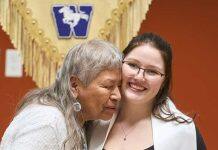An Australian-first medical technology hub, led by the University of Melbourne and backed by the Victorian Government, is set to accelerate Victoria’s medical technology development ecosystem, boosting the State’s advanced manufacturing capabilities, skilled job opportunities and access to cutting-edge medical care for Australians.


The $10.77 million Victorian Medtech Skills and Device Hub will bring together businesses, universities and education providers to develop training courses, degrees and internships in medtech. It will deliver up to a dozen investment-ready startups and 1,000 industry-based training places and support local companies to develop and manufacture medtech products onshore and expand exports to the booming global market.
The Hub was officially launched today by Victorian Minister for Industry and Innovation Ben Carroll, alongside representatives from the University of Melbourne, including Vice-Chancellor Professor Duncan Maskell, Deputy Vice-Chancellor (Research) Professor James McCluskey and Hub Directors Professor Andrea O’Connor and Professor David Grayden from the University’s Faculty of Engineering and Information Technology.
“Victoria’s medtech sector is a significant player in a booming global market – this Australian-first hub will boost local production, attract investment to Victoria and train the innovative staff the sector needs for its strong future,” Minister Carroll said.
The Hub is backed by the Victorian Government’s Australian Medtech Manufacturing Centre and co-funded by the University of Melbourne. Over 20 local medtech companies including Neo-Bionica, Synchron, Seer Medical and Trajan, as well as RMIT University, Swinburne University of Technology and national peak body MTPConnect will support the Hub, with more partners to join as it expands.
University of Melbourne Vice-Chancellor Professor Duncan Maskell welcomed the Victorian Government’s support and the collaborators’ involvement.
“The University of Melbourne is delighted to be partnering with the Victorian Government, the Aikenhead Centre for Medical Discovery, universities, industry and the medical technology sector to bring the Victorian Medtech Skills and Device Hub to life,” Professor Maskell said.
“We are excited about contributing our expertise in education, research and innovation to the medical technology ecosystem and look forward to supporting the growth of a vibrant industry that will benefit the Australian community and beyond.”
A key function that the Hub will provide is the Navigator, a centralised medical device engagement office for Victoria, identifying skills gaps, supporting industry-aligned course design, advising students and facilitating ongoing engagement between education providers and industry.
The Navigator will also serve to help emerging companies in the Victorian medtech ecosystem to navigate the pitfalls of commercial development through the provision of access to expert professional services, such as regulatory advice and commercialisation advice.
The Hub will develop and deliver training to address current and future workforce skills gaps for the medtech manufacturing industry, across the range of vocational and tertiary education levels, as well as continuing and professional education courses targeted to sector needs.
Hub Co-Director Professor Andrea O’Connor said the Hub will maximise the benefits of co-location of industry, bioengineering, biomedical and clinical researchers, students and hospital end-users.
“The University is at the forefront of Australian medtech innovation. It will be enormously exciting to see innovations nurtured through to commercial production, to benefit the public, new ventures and Australia’s medtech workforce,” Professor O’Connor said.
Hub Co-Director Professor David Grayden said the Hub provided the comprehensive ecosystem needed to benefit from the opportunities of this growing sector.
“The Hub will provide a pipeline of ‘work-ready’ employees and address key skills and labour-force gaps that have been limiting companies in progressing products through to establishing domestic manufacturing at scale,” Professor Grayden said.
The Hub will be located within the heart of Melbourne’s medical and research precinct at the Aikenhead Centre for Medical Discovery at St Vincent’s Hospital Melbourne, which is set to become Australia’s first hospital-based biomedical engineering research centre once construction is completed in 2024.
For more information about the Victorian Medtech Skills and Device Hub, visit https://vicmedtechhub.com.au/
Quotes from Victorian Medtech Skills and Device Hub partners:
Aikenhead Centre for Medical Discovery (ACMD) CEO, Dr Erol Harvey:
“The Aikenhead Centre for Medical Discovery is proud to be the home of the Victorian MedTech Skills and Device Hub. The Hub is an important initiative to address skills gaps by further developing working professionals and student knowledge and capabilities in MedTech manufacturing. The training and courses that it will provide perfectly complement and support research and activities based on real-life health needs that are being undertaken by ACMD and our partners.”
Neo-Bionica CEO, Dr Ludovic Labat
“Neo-Bionica recognises the need for training initiatives that develop an industry-ready workforce, so we’re delighted to support the launch of the Victorian Medtech Skills and Device Hub and congratulate the Victorian Government for its support of the sector.”
RMIT University Deputy Vice-Chancellor Vocational Education and Vice President, Mish Eastman
“RMIT, as a dual‐sector institution, will bring unique and extensive education and training capabilities to meet the needs of Victoria’s expanding MedTech sector. We are committed to collaborating with the Victorian Government and will leverage the capabilities of our Advanced Manufacturing Precinct and associated facilities to provide practical spaces that resemble the manufacturing environments in which graduates will work.”
Director of the MedTechVic Hub at Swinburne University of Technology, Professor Rachael McDonald:
“Swinburne welcomes the opportunity to partner with the University of Melbourne to teach the next generation of medical technology workers through our Higher and Vocational Educational courses, arming them with future workforce skills. Swinburne’s own MedTechVic Hub, Factory of the Future and eight-bed hospital training facility will be used in the program to educate and train students, ensuring Victoria continues to be a leader in MedTech manufacturing and development.”








































